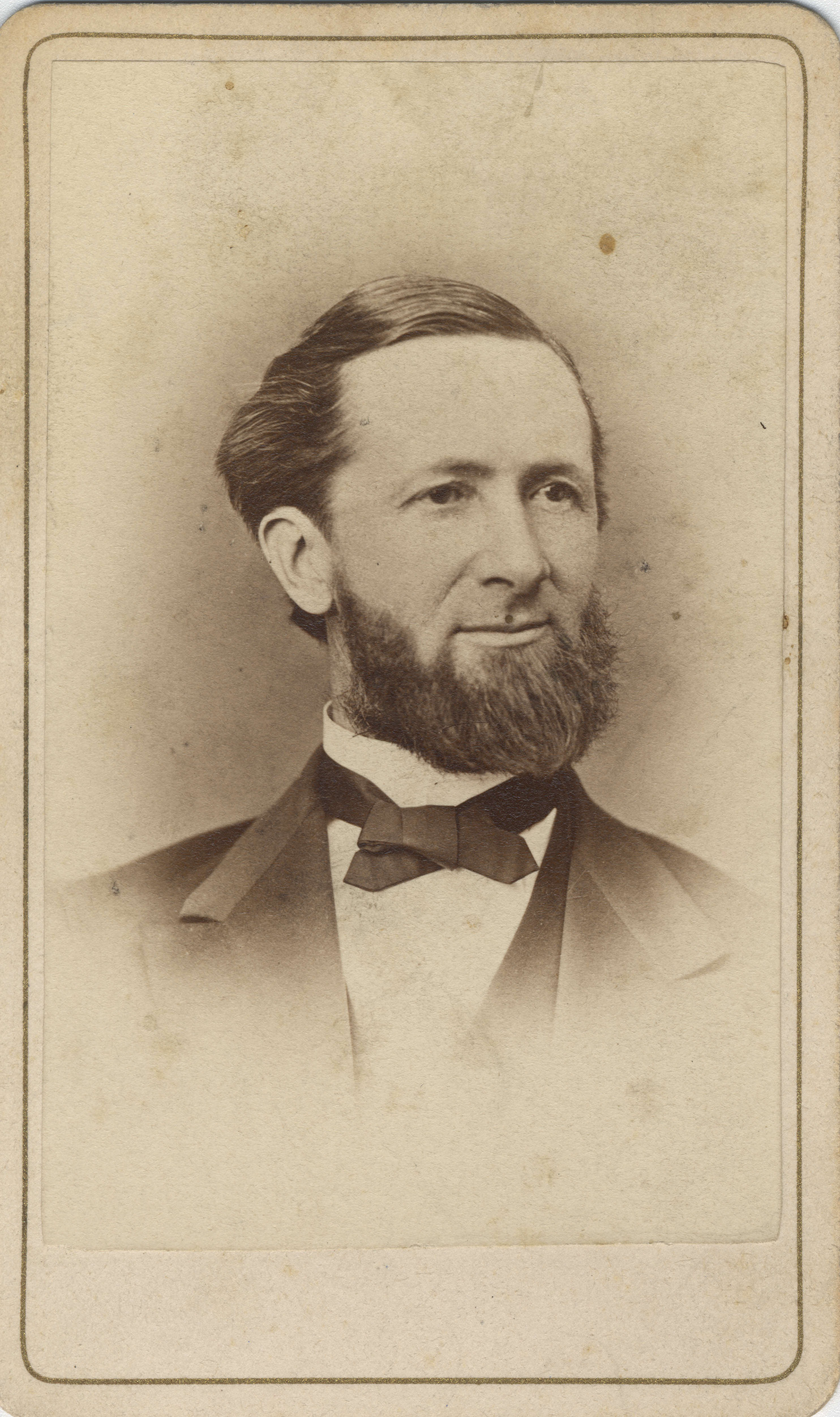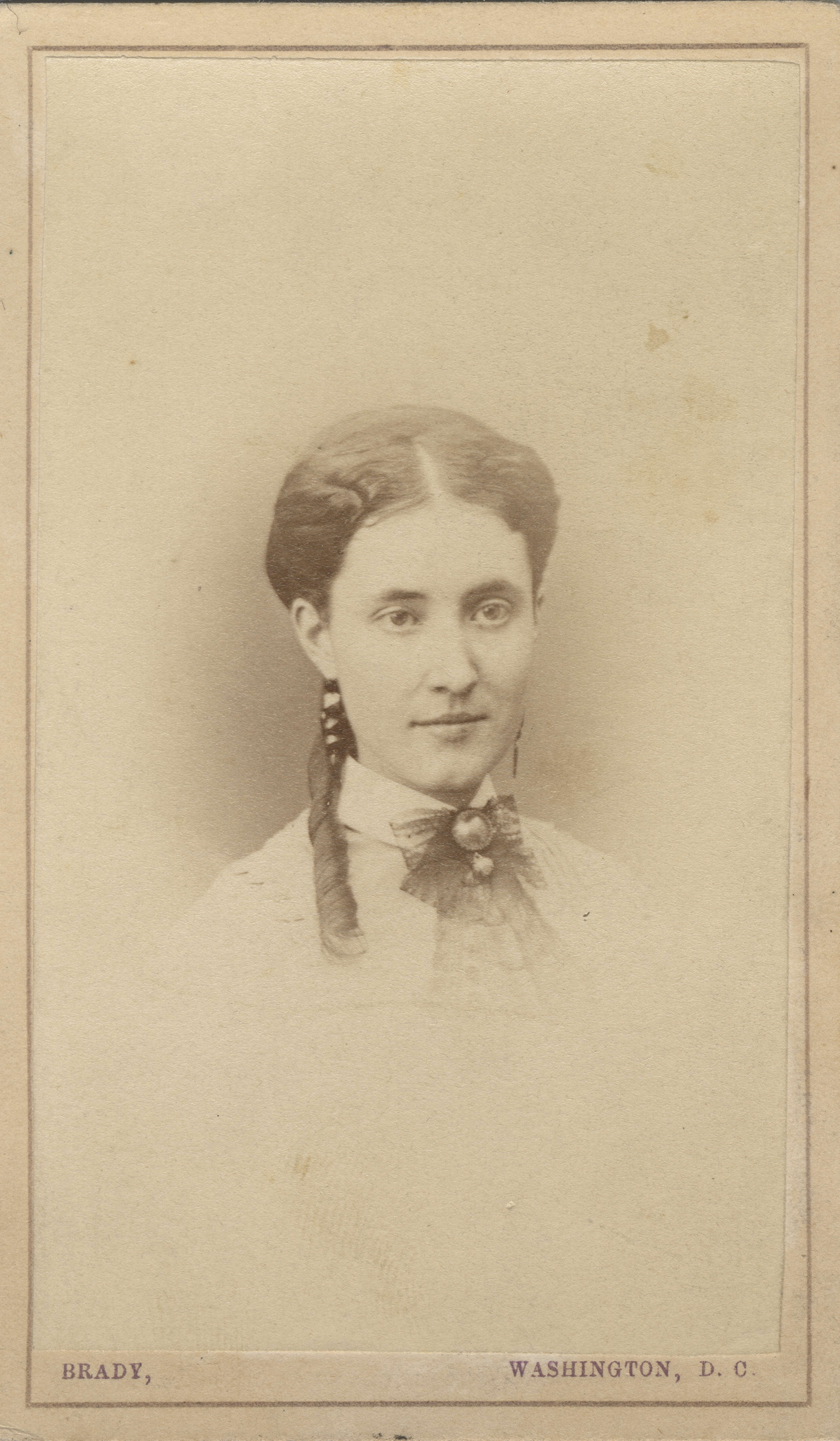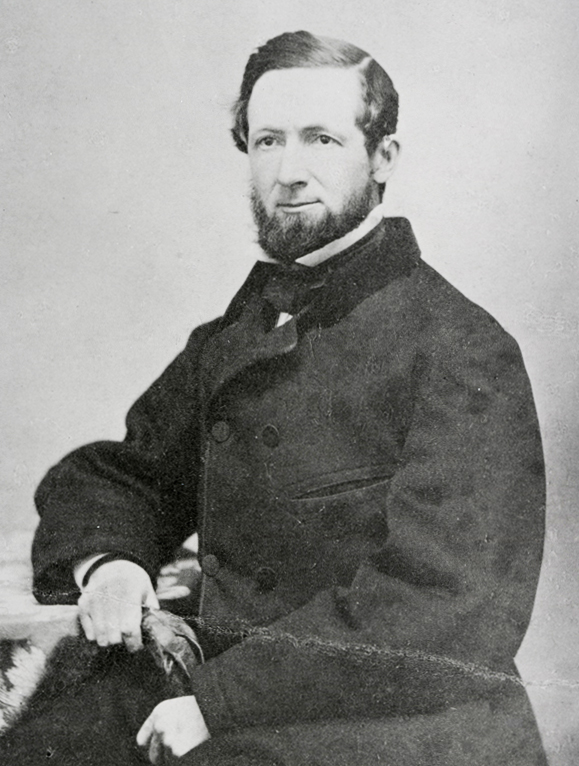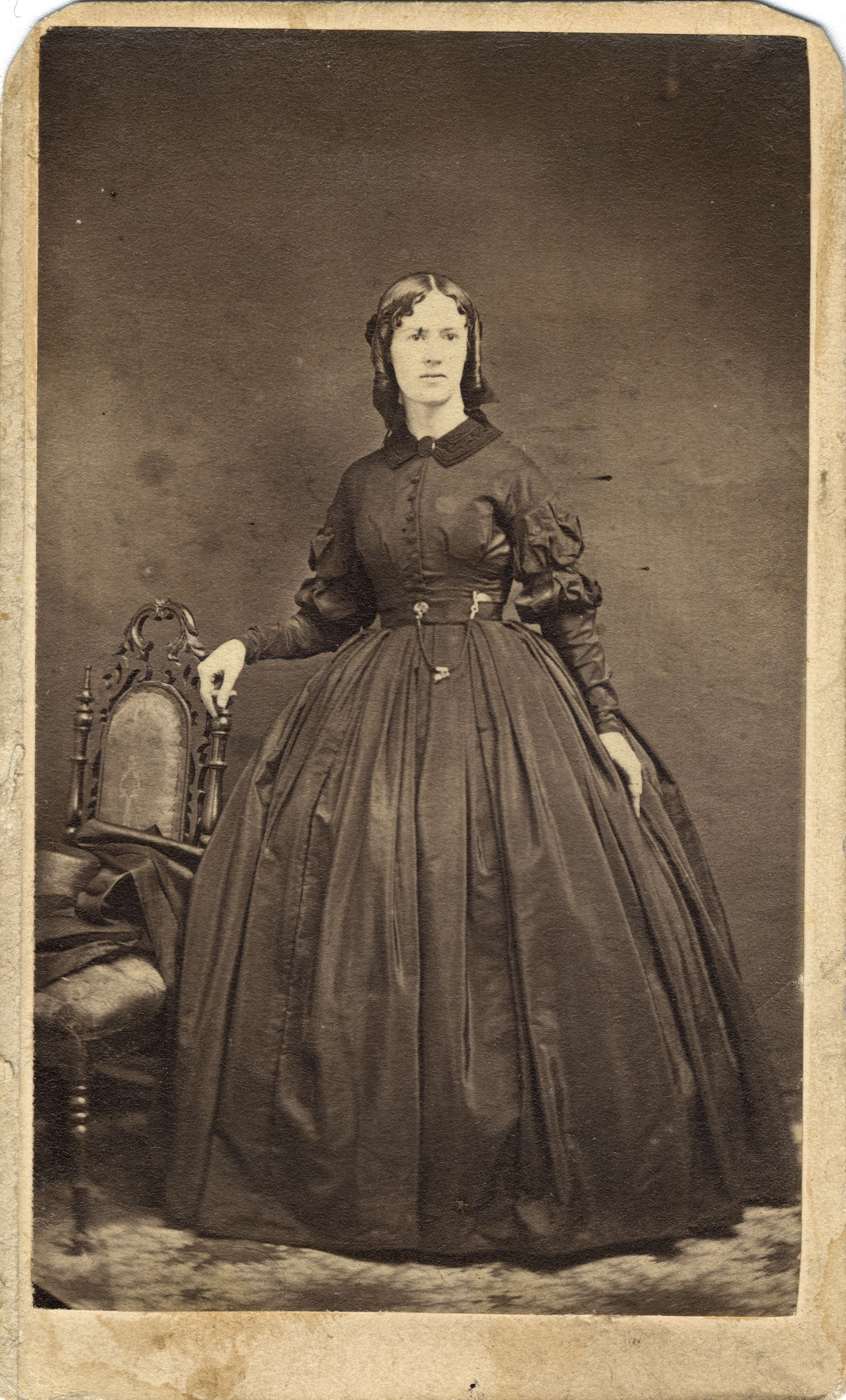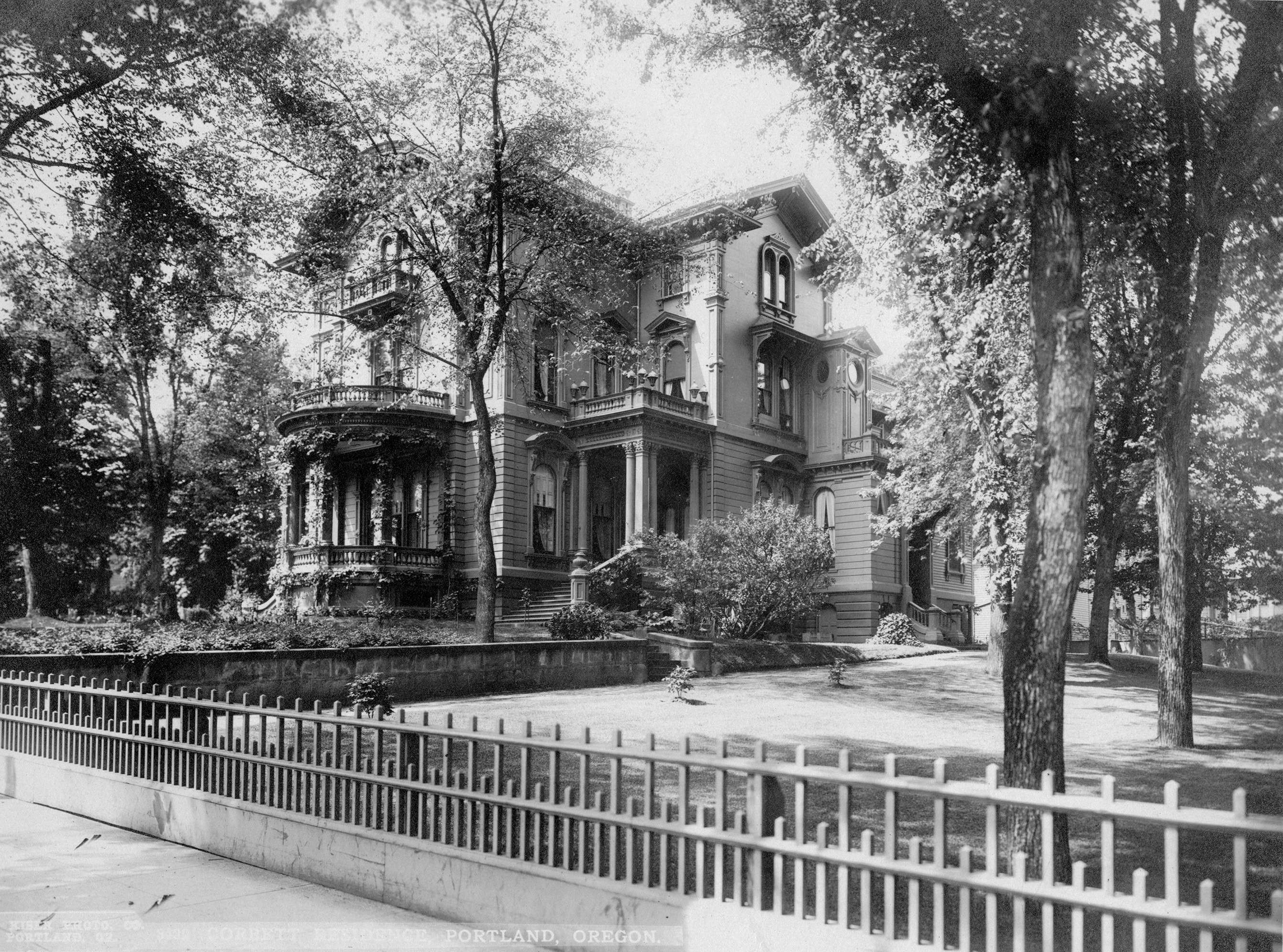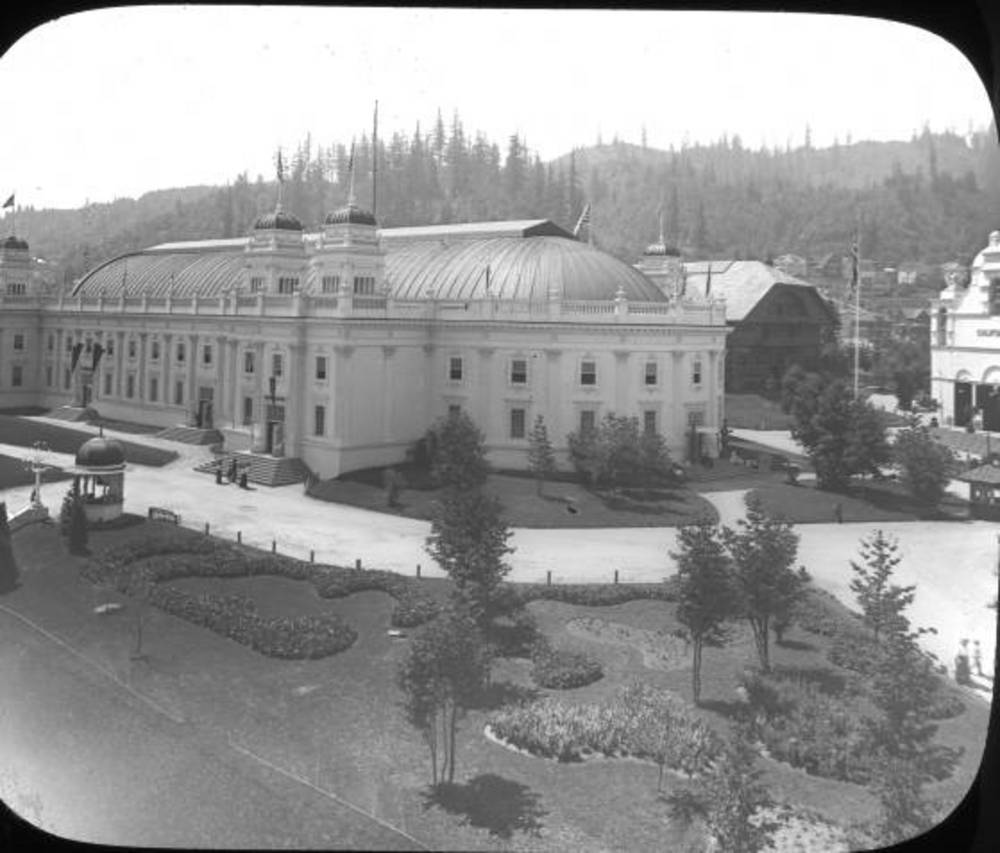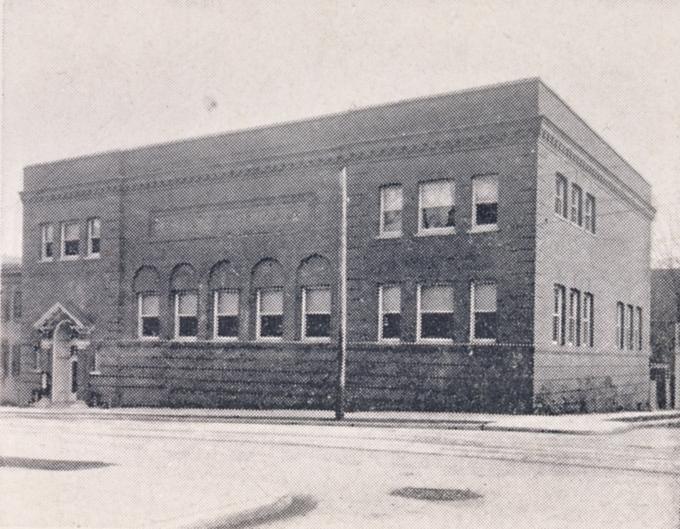In early 1851, Henry W. Corbett, an ambitious, twenty-four-year-old adventurer, departed from New York City’s busy East River, sailing to the Isthmus of Panama, crossing to the Pacific, and continuing by sea to Portland. By the time of his death over fifty years later, he was a prominent businessman and cultural leader—"the epitome," historian Malcolm Clark Jr. wrote, "of the frontier tycoon."
Born in 1827 in Westboro, Massachusetts, and educated in White Creek, New York, Corbett had moved to New York City to clerk in a dry-goods store. Well aware that the city’s exporting merchants had made solid profits in gold rush California, his employer, Williams, Bradford & Company, anticipated success by sending Corbett to merchandise goods in Oregon. He rented a frame building on Portland’s stump-lined Front Street, slept in a loft, and sold to the town’s residents, which numbered 800. He also visited the Willamette Valley, where he learned that farmers were eager to buy coffee, tobacco, cloth, shoes, nails, and brooms. Within fourteenth months, he had sold his stock and had earned a solid $20,000 profit.
Corbett returned home and married Caroline Jagger in Albany, New York. He returned to Portland in 1853 with a plan to sell New York goods and undersell his competitors, who bought goods in San Francisco. He sold merchandise to volunteer soldiers during the so-called Indian Wars, to miners headed for diggings up the Columbia River, and to farmers and merchants.
The Corbetts had two sons before Caroline died in 1866. He married Emma Ruggles in 1867, and by 1871 he had built a $40,000 three-story brick building on Front Street and had established himself as an accomplished businessman. Corbett invested wisely and widely in woolens and salmon, property, stage coaching, railroading, and banking and hardware with his brother-in law, Henry Failing, who had married Corbett’s sister, Emily, in 1858. Among his corporate roles, he was a director of the Oregon Steam Navigation Company.
A participant in local and national politics, Corbett shifted from the dying Whig Party in the 1850s to help lead the emerging Republican Party in Oregon. In 1860, he was elected to the Republican National Convention. A staunch patriot, he worked to bring local Republicans and War Democrats together in the Union Party. In 1866, he won election to the U.S. Senate as a Republican and, following the Whig policies from the 1830s and 1840s of Henry Clay, pushed transportation legislation to improve Oregon’s commercial economy.
Corbett was absorbed with the economic issues of Reconstruction, favoring the gold standard, protective tariffs, liquor and tobacco taxes, and a low interest rate on the nation’s war debt. He opposed the naturalization of foreign-born Chinese, urged improvement in the management of Indian reservations, and, with his wife, rejected woman’s suffrage. He played no role in the impeachment trial of President Andrew Johnson, but he did vote him guilty.
Railroad magnate Ben Holladay and lawyer John H. Mitchell combined their influence to defeat Corbett in his re-election bid. He used the Oregonian, which he had purchased from Henry L. Pittock in 1872, to criticize his opponents, accusing them of stealing the election. For the rest of his life, Corbett would oppose Mitchell’s phalanx in the Oregon Republican Party.
His ownership of the Oregonian ended in 1877, when Pittock regained financial control of the paper. In 1897, Corbett again sought election to the U.S. Senate but was unsuccessful.
Corbett owned a Portland mansion, a Long Beach, Washington, residence, and a country home near the town bearing his name at the west end of the Columbia River Gorge. Known for his energy and steadfastness, he helped create the Library Association in 1864, the Seamen’s Friend Society in 1877, and the Portland Art Association in 1892. He also contributed to the Children’s Home in 1884 and served as the elected president of the Lewis and Clark Centennial Exposition Association in 1901. At his death in 1903, Corbett left more than $200,000 to community organizations.
Corbett called himself a merchant-statesman, and his contemporaries considered him Portland’s foremost citizen. Although Corbett once had fired him, Oregonian editor Harvey Scott described him as the “chief of the pillars of our temple of growth, prosperity and advancement.” He was, as historian E. Kimbark MacColl reasoned, “the most significant and complex of the frontier merchants.”
-
![]()
Henry W. Corbett, c.1877.
Oregon Historical Society Research Library, ba000277
-
![]()
Emma Ruggles Corbett, c.1870.
Oregon Historical Society Research Library, ba000281
-
![Henry Winslow Corbett]()
Henry Winslow Corbett.
Henry Winslow Corbett Courtesy Oreg, Hist. Research Lib., bb008483
-
![]()
Caroline Jagger Corbett, c.1861.
Oregon Historical Society Research Library, ba000280
-
![]()
Corbett house, SW 5th and Yamhill, Portland, 1907.
Oregon Historical Society Research Library, bb000429
Related Entries
-
![Lewis and Clark Exposition]()
Lewis and Clark Exposition
Portland staged its first and only world's fair from June 1 through Oct…
-
![Oregon Steam Navigation Company]()
Oregon Steam Navigation Company
Among early business enterprises in Oregon, the Oregon Steam Navigation…
-
![Portland Art Association]()
Portland Art Association
The Portland Art Association (PAA) was organized on December 12, 1892, …
-
![The Oregonian]()
The Oregonian
The Oregonian, the oldest newspaper in continuous production west of Sa…
Related Historical Records
Map This on the Oregon History WayFinder
The Oregon History Wayfinder is an interactive map that identifies significant places, people, and events in Oregon history.
Further Reading
Clark, Malcolm Jr., ed. Pharisee Among Philistines: The Diary of Judge Matthew P. Deady, 1871-1892. Portland: Oregon Historical Society, 1975.
MacColl, Kimbark. Merchants, Money and Power: The Portland Establishment, 1843-1913. Portland: The Georgian Press, 1988.
Throckmorton, Arthur L. Oregon Argonauts: Merchant Adventurers on the Western Frontier. Portland: Oregon Historical Society, 1961.

